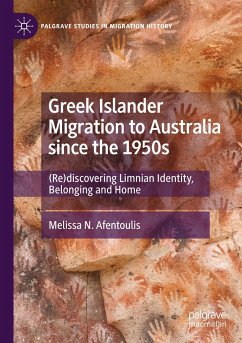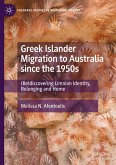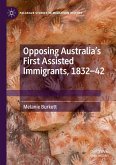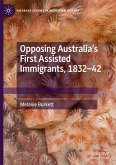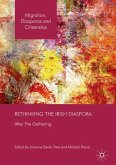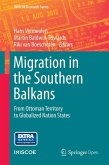Illuminating the experiences of immigrants to Australia in the late twentieth century, this book uses oral history to explore how identity and belonging are shaped through migration. Between the 1950s and the 1970s, many inhabitants from the small Greek island of Limnos travelled to Australia to flee post-war devastation and economic disaster. With an emphasis on the lived experiences and memories of Limnians, the book sheds light on the emotional pain and trauma they felt as they were separated from their families and homeland. Moving away from more traditional outlooks on migration studies, this book emphasises the significance of ethno-regional identity, and analyses how it can bring strength and longevity to a constructed community. Both the roles of men and women within the Greek diaspora are examined, in the way that they made the difficult decision to leave their homeland, and subsequently how they came to nurture and build families within a new, evolving community. Looking beyond first-generation migration, the author analyses the pattern of return visits to Limnos by the descendants of migrants. Acting as a form of identity consolidation for second-generation migrants, this journey to the ancestral homeland highlights the fluidity of what it means to belong somewhere, and redefines the notion of 'home'. The author provides an alternative perspective to traditional migration studies and reaffirms the importance of transnational identity. A unique and important addition to research, this book combines memory studies and oral narrative to analyse how identity and belonging can be shaped across borders, rather than within them.

